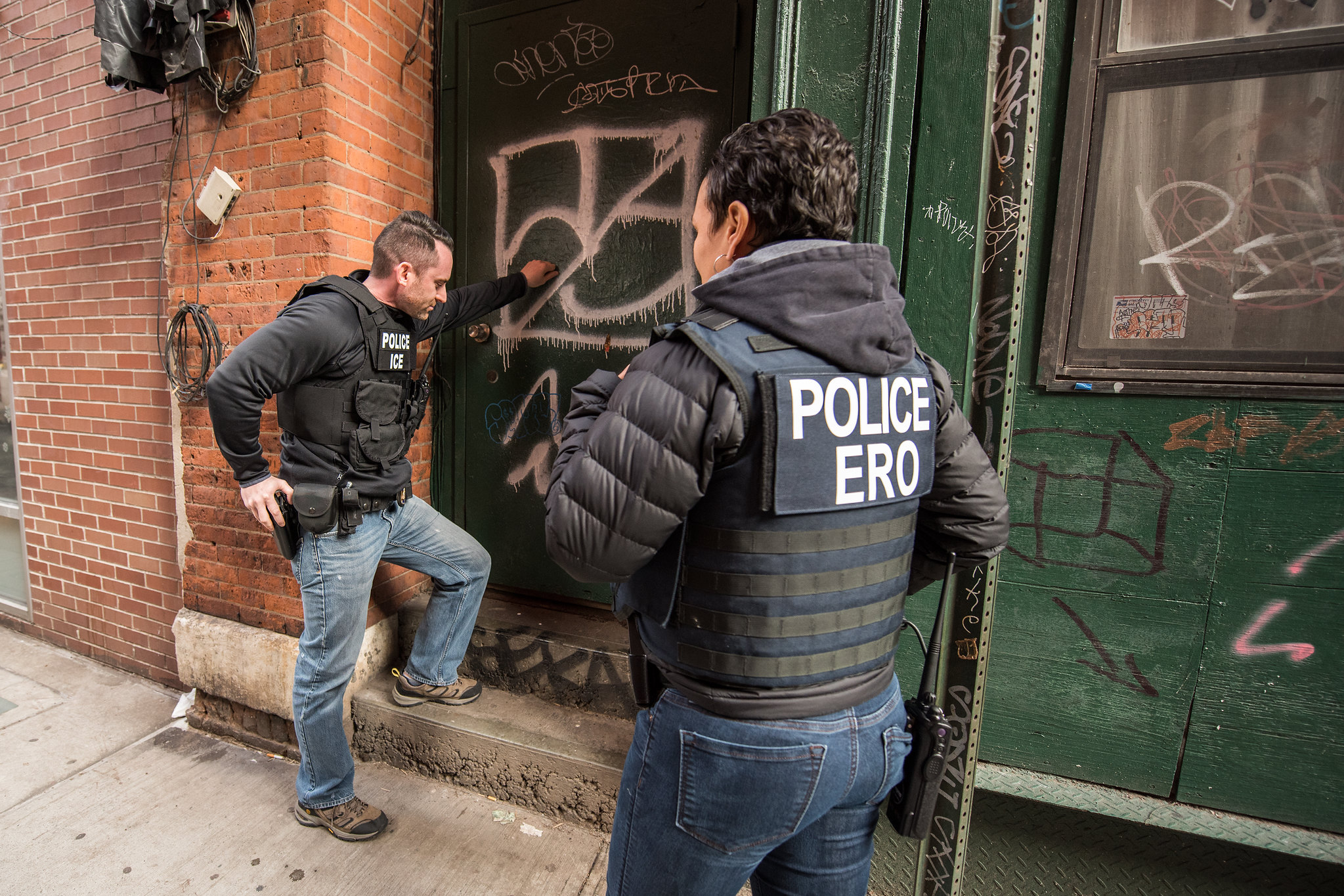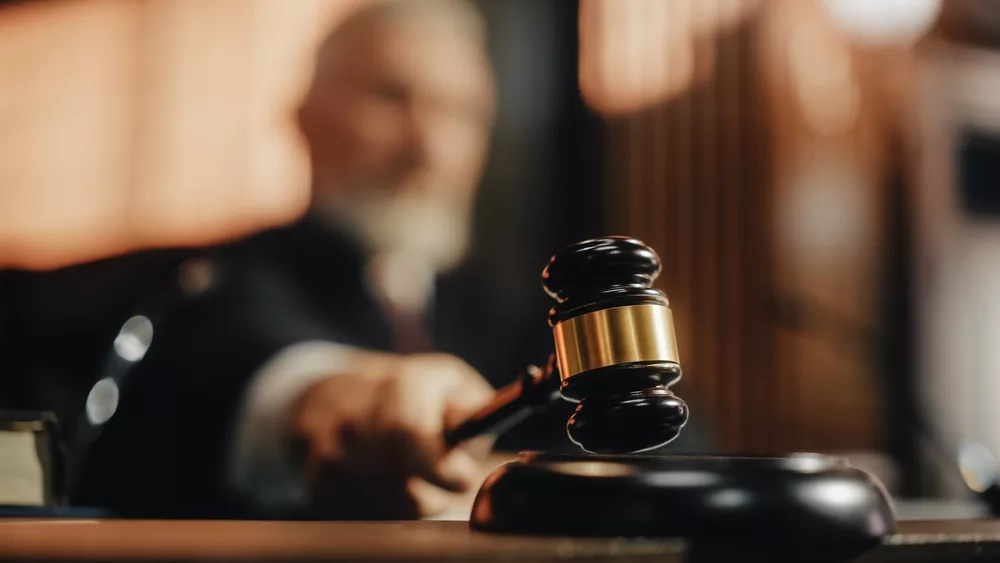Noemi Peña had just received the call from her son Marvin. He was ready to be picked up from the New Jersey courthouse after being arrested for Marijuana possession, he told her. But he never made it to his mother that day in January of 2017.
Instead, ICE agents grabbed her son, Marvin Jerezano Peña, outside the building and held him in ICE custody for one year before he was released on bond. Immediately, the life that Peña had been living for almost 15 years, since he came across the border from Veracruz, Mexico when he was just 10 years old, was derailed by the arrest for marijuana possession.
Now, Peña is back in ICE detention and is set for potential deportation back to Mexico at the end of July. If removed from the country, he will leave behind his entire family—a two-year-old son, a wife, a mother and a five year old sister.
“It’s been stressful being in here, knowing that I can’t do anything for my family,” Peña said in a brief telephone interview from detention. “It hurts my heart to think that I can’t provide for my son. It’s depressing to think about.”
Noemi Peña, his mother, has been rallying tirelessly for her son’s release from ICE detention for more than a year now–he was first detained at the Bergen County Jail, but was recently transferred to the Buffalo Service Processing Center in Batavia, New York.
“We’re still fighting, we’re hoping that with God’s help we’ll figure something out,” she said in Spanish. “All of this time has been a horrible nightmare, economically and emotionally.”
Recent legislation in New York and neighboring New Jersey has made the recreational use of Marijuana legal. In New York, a law signed by the governor at the end of March allowed individuals to possess up to three ounces of marijuana, and in New Jersey the law allowing recreational Marijuana was passed in February.
But experts urge caution particularly for immigrants on a liminal status—such as DACA or TPS holders— and for those who travel out of the country frequently. Using or possessing the drug still carries a significant legal risk for these groups in particular even in states where recreational use is legal, and can lead to negative immigration consequences, the most severe of which can be eventual deportation or inadmissibility to the United States.
The arrest for marijuana possession was followed by an immediate ICE arrest in 2017, then Peña was released on bond the following year. But after he failed to appear at a probation hearing in 2019, Peña, 27 —who is undocumented— was transferred to ICE custody, where he has been held ever since
His mother never imagined that a marijuana arrest would lead to this, she said. She often sees people smoking marijuana and wonders how the consequences could be so drastically different for someone without legal status, compared to an American citizen.
Noemi Peña used to split the rent in their Red Bank, New Jersey, home with her son, and her own husband was deported just two months ago. Now she is left paying all the expenses alone, with a five-year-old daughter to take care of. “I have to push forward for them, because they need me,” she said. “My daughter has been left without her dad and her brother…I wish a miracle would happen and they would let him out, that would be such a huge support system for me.”
Although recreational marijuana is legal in 18 states and Washington D.C., it remains a federal crime to ingest or use or possess it. It’s classified under federal law as a Schedule I controlled substance, which means it’s in the same group as heroin, LSD and ecstasy.
“It’s the federal immigration law that determines what may create a negative immigration consequence and what doesn’t,” said Marie Mark, the director of legal support and resources at the Immigrant Defense Project.
For those with temporary status, like DACA or TPS, the situation is particularly perilous. If a police officer at a traffic stop or elsewhere asks a recipient if they have used marijuana, and an individual admits to it, their temporary status can be revoked, said Lenni Benson, a professor of Immigration and human rights law at New York Law School.
Additionally, if someone is applying for naturalization status and has traveled out of the country in recent years, and is questioned by USCIS about whether they have used marijuana prior to the reentry in the country, that individual is technically removable from the country, Benson said, “because at the time of your last entry you were inadmissible.”
In fiscal year 2019, Drug offenses were the second most common offense among people who were deported, after entering the country illegally. ICE arrested more than 67,000 people for non-trafficking related drug offenses in fiscal year 2019, according to a recent report from the Drug Policy Alliance.
Admitting to marijuana use can also seriously hinder an immigrants’ chance at gaining citizenship in the United States, said Catherine Gonzalez, a senior staff attorney with the Brooklyn Defender Services.
To become a citizen, immigrants must establish what officials call “good moral character.” But if someone has a previous marijuana conviction—or even just an arrest—immigrants may not meet this specific criteria for status, and can be denied citizenship.
“It’s very very important for immigrant communities and noncitizens to know that any involvement with marijuana—even if it’s under lawful conduct under the law of the state that they live in—can have negative consequences,” Gonzalez said, adding that Immigrants can also be deemed as inadmissible into the United States due to a prior marijuana conviction.
Still, some experts are hopeful that the law is a positive step forward to shield immigrants from the most severe legal repercussions for engaging in marijuana use.
Since the legislation passed in New York, there won’t be a basis for the New York Police Department to target people for low level marijuana possession, something that was happening frequently in communities of color and immigrant communities, Gonzalez said. This effect of the bill has the potential to disrupt what she calls the “feeding of non-citizens into the deportation machine.”
If someone is arrested for Marijuana possession, Gonzalez said, ICE can be alerted and decide that they’re going to pursue them—even if that individual is not convicted.
When immigrants are brought into the criminal legal system, the fingerprints are transmitted to the Department of Homeland Security, which can alert ICE of their presence or any issues that may jeopardize their status, Mark of the Immigrant Defense Project said. “It increases their risk for an immigration enforcement action against them,” she said.
So even if the New York legislation may not eliminate the possibility of immigration consequences altogether, “just the fact of stopping the police from arresting people for marijuana-related activity will decrease this arrest to deportation and detention pipeline,” Mark said.
In fact, it was a Marijuana arrest that first brought Pena, the undocumented immigrant from Mexico, onto ICE’s radar, said Sophia Genovese, his attorney from Catholic Charities. “That certainly led to him being known to ICE,” she said, noting that information is often shared between law enforcement authorities and the agency– New Jersey did not become a sanctuary state until 2019, about two years after Peña was arrested in 2017. “That’s what led to the transfer to ICE custody, and then commenced the deportation proceedings against him.”
Peña also had a previous marijuana possession conviction from 2015, for under 30 grams of marijuana. Both the arrest and conviction were for possession of 5 grams of Marijuana–which would have been legal today under the new marijuana legalization law in New Jersey, Genovese said.
In an interview, Peña noted that he only possessed marijuana to smoke socially, as many friends and others around him did. During his arrest in 2017, Peña was riding in his friend’s car, and a police officer stopped them for a broken headlight, Peña said. The official found marijuana in the vehicle, according to Peña. “I never knew the consequences,” he said. “I never thought that I was going to get a criminal charge for that. I was never aware of that that could happen.”
In New York, the law legalizing marijuana also expunges old marijuana convictions for possession which would have been legal under the recently passed legislation.
Immigrants, however, have to go through added lengths to ensure their convictions can be expunged. A conviction can only be vacated if immigration court looks at each conviction individually in order to expunge it, Mark said. So the legalization law in New York allows for immigrants to appear before immigration court in order to have these convictions vacated.
“It is definitely an extra step that people have to take,” she said, but her organization has already seen several immigrants successfully expunge their convictions in the past few months.
But some experts are still dissuaded by how much this legalization will actually protect immigrants—and while they applaud the local legalization, they’re pushing for a larger federal step.
“As in many other areas of immigration law, Congress needs to reform and address a law that hasn’t been updated to reflect changes in society. And as states have legalized marijuana use, it does create two classes of users,” said Benson of New York Law School. “The lawful user, and the user who may face deportation or inability to immigrate in the future– or inability to reenter the country after a trip.”
Peña’s mother, Noemi Peña, says that she has seen some significant changes in her son’s character since he was detained. He’s becoming closer to God, she said, and has been reading the Bible. He speaks often about the moments he’s missing that he could be cherishing with his son—especially his son’s first words and first steps.
“If they could just give me a second chance to come forth and be able to help my family,” Peña said.
Now, Noemi Peña reflects often on how the possession of a common drug created such a deep rupture in her family. “If you’re American–nothing happens, because you’re in your own country,” Noemi Peña said. “But those that are undocumented are judged for a minor error they made, they are criminalized in the worst way.”















